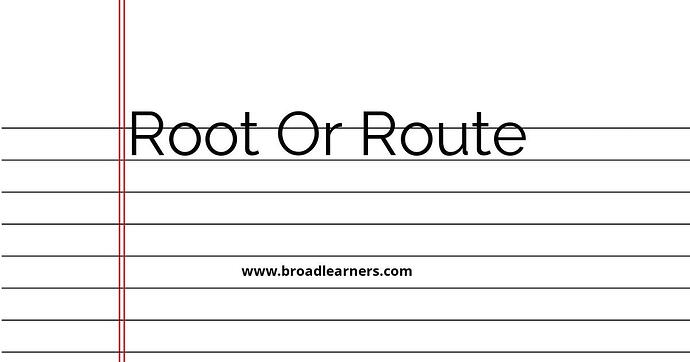'Root' and 'route' are commonly confused words in English grammar. Understanding the difference between 'root' and 'route' is important to use them correctly in written and spoken English.
'Root' is a noun that refers to the part of a plant that typically lies below the surface of the ground and absorbs water and nutrients. It can also refer to the basic cause, source, or origin of something.
'Route' is a noun that refers to a way or course taken in getting from a starting point to a destination. It can also be used as a verb to mean to send or direct along a particular course or route.
Let's take a closer look at the meanings and usage of 'root' and 'route'.
| 'Root' | 'Route' |
|---|---|
| The word 'root' is used to refer to the part of a plant that lies below the surface of the ground and absorbs water and nutrients. It can also refer to the basic cause, source, or origin of something. | The word 'route' is used to refer to a way or course taken in getting from a starting point to a destination. It can also be used as a verb to mean to send or direct along a particular course or route. |
|
|
To remember the difference between 'root' and 'route', it can be helpful to think of 'root' as something that is underground and 'route' as a path or course taken.
Here are some examples of correct usage:
- The tree's roots are strong and provide stability.
- We took a different route to avoid traffic.
- The root cause of the issue needs to be addressed.
- The package will be routed through the nearest distribution center.
Remembering the correct usage of 'root' and 'route' will improve your grammar and communication skills.
